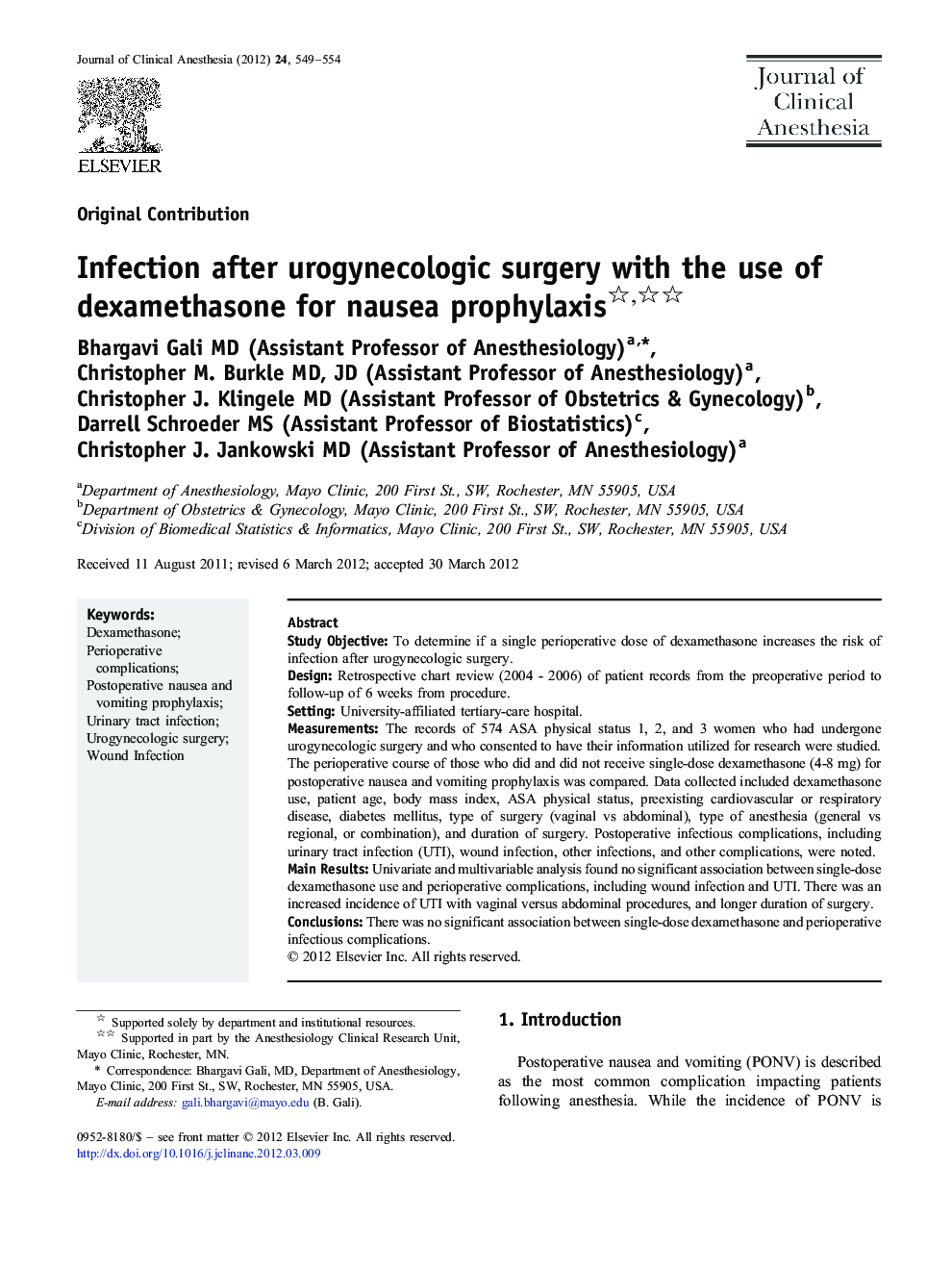| Article ID | Journal | Published Year | Pages | File Type |
|---|---|---|---|---|
| 2762620 | Journal of Clinical Anesthesia | 2012 | 6 Pages |
Study ObjectiveTo determine if a single perioperative dose of dexamethasone increases the risk of infection after urogynecologic surgery.DesignRetrospective chart review (2004 - 2006) of patient records from the preoperative period to follow-up of 6 weeks from procedure.SettingUniversity-affiliated tertiary-care hospital.MeasurementsThe records of 574 ASA physical status 1, 2, and 3 women who had undergone urogynecologic surgery and who consented to have their information utilized for research were studied. The perioperative course of those who did and did not receive single-dose dexamethasone (4-8 mg) for postoperative nausea and vomiting prophylaxis was compared. Data collected included dexamethasone use, patient age, body mass index, ASA physical status, preexisting cardiovascular or respiratory disease, diabetes mellitus, type of surgery (vaginal vs abdominal), type of anesthesia (general vs regional, or combination), and duration of surgery. Postoperative infectious complications, including urinary tract infection (UTI), wound infection, other infections, and other complications, were noted.Main ResultsUnivariate and multivariable analysis found no significant association between single-dose dexamethasone use and perioperative complications, including wound infection and UTI. There was an increased incidence of UTI with vaginal versus abdominal procedures, and longer duration of surgery.ConclusionsThere was no significant association between single-dose dexamethasone and perioperative infectious complications.
